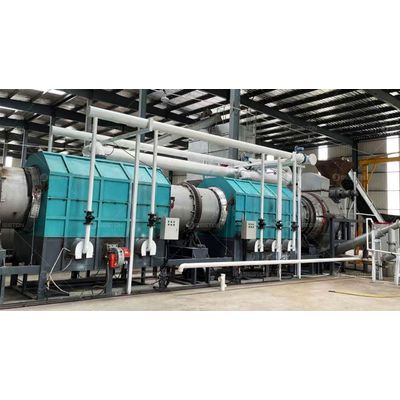


Empty Fruit Bunch Disposal Options: Charcoal Production
Introduction
The Challenge of Empty Fruit Bunch (EFB) Disposal
Empty Fruit Bunches (EFB) have long been a challenge for the palm oil industry and have posed an environmental hazard due to their accumulation. This article explores a sustainable solution: charcoal production from EFB.
Understanding Empty Fruit Bunch (EFB)
What are Empty Fruit Bunches?
Empty Fruit Bunches, a byproduct of palm oil extraction, are the non-fruit components of oil palm trees, consisting of mainly fronds and fiber. These EFB, if not managed properly, can lead to numerous environmental and economic issues.
The Environmental Impact of EFB Accumulation
The accumulation of EFB can result in environmental degradation, affecting soil quality and posing a threat to local ecosystems. Understanding the environmental consequences of EFB is essential to address the issue.
The Charcoal Production Process
Biomass Conversion Technology
- Pyrolysis-The Heart of Charcoal Production: The biomass pyrolysis process is the core process that transforms EFB into charcoal. It involves the heating of biomass in the absence of oxygen, resulting in the decomposition of organic materials and the production of charcoal.
- Gasification and Carbonization: Gasification and carbonization are integral steps in the charcoal production process, converting volatile components into useful gases and creating high-quality charcoal.
Charcoal Properties
- Carbon Content and Quality: The carbon content and quality of charcoal are pivotal in determining its application, whether for energy production or other uses.
- Calorific Value: The calorific value of charcoal is a critical factor in its energy potential, influencing its demand in various industries.
Benefits of Charcoal Production from EFB
Environmental Benefits
- Reducing EFB Waste: Charcoal production helps reduce the volume of waste, alleviating the burden of EFB disposal.
- Mitigating Greenhouse Gas Emissions: This sustainable approach mitigates greenhouse gas emissions by avoiding the open burning of EFB.
Economic Advantages
- Generating Additional Revenue Streams: Charcoal production creates an additional revenue stream for palm oil mills, contributing to the economic sustainability of the industry.
- Creating Job Opportunities: The process of charcoal production generates employment opportunities, benefiting local communities.
Challenges and Considerations
Technological Challenges
- Pyrolysis Efficiency: Optimizing the efficiency of the pyrolysis process is crucial to maximize charcoal yield and minimize waste.
- Energy Consumption: Charcoal production by charcoal making machine often requires substantial energy input, raising concerns about its overall sustainability.
Sustainability and Regulations
- Sustainable EFB Sourcing: Ensuring a sustainable supply of EFB is essential to maintain the long-term viability of charcoal production.
- Compliance with Environmental Regulations: Adhering to environmental regulations is vital to prevent adverse ecological impacts.
Conclusion
Charcoal Production from EFB: A Win-Win Solution
Charcoal production from Empty Fruit Bunches offers a sustainable and economically viable solution to the EFB disposal challenge, benefiting both the palm oil industry and the environment. As technology advances and sustainability practices improve, this innovative approach holds promising prospects for the future.
